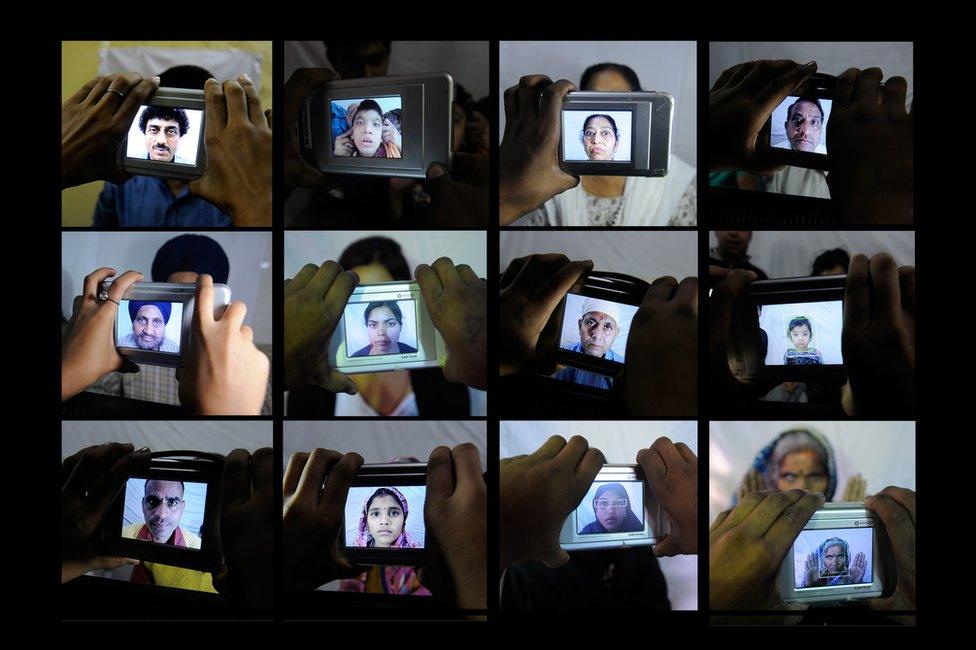Aadhaar: India court says biometric ID mandatory for welfare
- Published

More than a billion residents of India have a unique identity number
India's Supreme Court has rejected an attempt to stop the government making a controversial biometric identity card mandatory for social welfare schemes.
The government's policy was challenged over data security and privacy concerns.
Aadhaar, which means foundation, started out as a voluntary programme to help tackle benefit fraud.
However, it has become increasingly critical for any financial transactions and for access to welfare schemes.
States have been using Aadhaar to transfer government pensions, scholarships, wages for a landmark rural jobs-for-work scheme and benefits for cooking fuel to targeted recipients, and distribute cheap food to the poor.
The government argues that Aadhaar has cut waste, removed fakes, curbed corruption and made substantial savings.
But questions have been raised about the moral authority of the government to force citizens to share biometric data. Activists say it is in breach of the UN's Fundamental Right of Privacy.